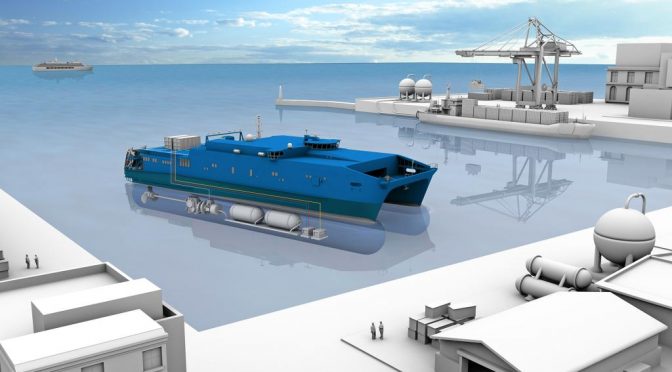On 23 June 2020, the Senate of the German Aerospace Center (Deutsches Zentrum fuer Luft- und Raumfahrt; DLR) gave the green light for the establishment of two new institutes. These will conduct research on innovative technologies for the mobility and energy transition. On 14 November 2019, the Budget Committee of the German Federal Parliament (Bundestag) approved and released the necessary funds to the Federal Ministry for Economic Affairs and Energy (Bundesministerium fuer Wirtschaft und Energie, BMWi) for the creation of the new DLR institutes. The BMWi is providing a more than 22 million euro per year and the states of Lower Saxony and Schleswig-Holstein are contributing another two million euro annually.
“We are delighted to welcome you to the DLR family. These new institutes are further proof of the confidence that the federal and state governments have in DLR’s cutting-edge research,” said Pascale Ehrenfreund, Chair of the DLR Executive Board. “Scientific competence and research on current, technologically, socially and economically important issues form the basis for enhancing Germany as a location for science and business. With the new institutes, we will strengthen our activities in the highly relevant fields of maritime energy systems and future mobility.”
Karsten Lemmer, DLR Executive Board Member for Energy and Transport, added: “The mobility transition and climate change are very topical issues that are closely related. A sustainable, efficient, safe and ‘human-centred’ transport and energy system makes an important contribution to meeting the challenges posed by global change. The new institutes complement our existing portfolio. Energy technologies developed at DLR are used in shipping and we are methodically working on improving the reliability of AI vehicle solutions. The new institutes will strengthen our expertise in sustainable energy supply and mobility.”
DLR Institute of Maritime Energy Systems (Geesthacht, Schleswig-Holstein)
In order to reduce carbon dioxide emissions from shipping and thus achieve greater sustainability in maritime transport, the DLR Institute of Maritime Energy Systems is being established in Geesthacht, southeast of Hamburg in Schleswig-Holstein. It is the first DLR institute in Schleswig-Holstein. The entire energy conversion chain is considered there – from port infrastructure to on-board fuel storage and the effective provision of energy for ships. The focus will be on the provision of electricity, as well as heating and cooling systems for cargo and passenger ships. The use of alternative fuels and the integration of technologies such as fuel-cell systems will play an important role in this context. In addition, the researchers will examine synergies in port operations and the energy supply infrastructure on land.
The goal is to develop integrated systems for efficient and low-emission energy supply for ships of various sizes. The results will be demonstrated, tested and qualified using a research vessel under realistic conditions. This will significantly reduce overall emissions from maritime applications and shape the energy supply paths of the future.
DLR Institute of Systems Engineering for Future Mobility (Oldenburg, Lower Saxony)
In Lower Saxony, the DLR Institute of Systems Engineering for Future Mobility is being created from a spin-off of the transport research area at the OFFIS Institute for Information Technology, part of the Carl von Ossietzky University of Oldenburg. The institute has been working closely with DLR for a long time. Among other things, the experts will work on the reliability of automated and autonomous transport systems on rail, road and water. The computer science institute develops methods and tools for the design, simulation, verification, validation and certification of reliable and dependable systems for future mobility.


